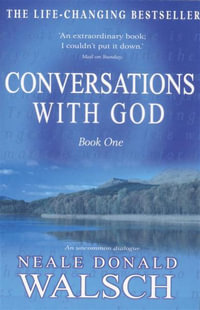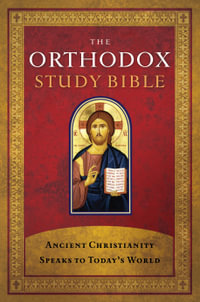Gilmour's book expertly traces the indelible and ubiquitous imprint of the Bible on classic literature and pop culture alike. Through his sensitive readings of literature, Gilmour argues that one's empathy for the marginalized can be enhanced by bringing literature and Scripture into conversation with each other. His winsome prose will spark your desire to read more widely in literature and more deeply in the biblical text that has so masterfully shaped culture. --David Anonby, assistant professor of English, Trinity Western University, and author of Shakespeare on Salvation: Crossing the Reformation Divide
This isn't a book that parses this or that obvious biblical citation in well-known, highfalutin pieces of literature. Those books have their value, but Michael Gilmour is aiming for something different. In Reading the Margins: Encounters with the Bible in Literature, Gilmour examines often offbeat and uncommon examples to show that creative writing can encourage readers to reflect deeply and can challenge us to develop empathy. His work illuminates allusions to and echoes of the Bible in the service of directing the reader to ponder profoundly and dialogically Scripture's call to embrace a more selfless inclusivity of those on the margins. Gilmour's chapter on Woody Guthrie's Bound for Glory demonstrates his approach nicely, as he mines Guthrie's quasi-memoir and discovers how it stresses compassion for the downtrodden, how it foregrounds the importance of learning oppressed people's stories, and how its characters model charity and kindness to "the least of these." Gilmour's deeply researched and compellingly written message is one we'd do well to heed in our time of divisiveness, partisan politics, and religious nationalism. --Dan W. Clanton Jr., associate professor of religious studies, Doane University, and author of God and the Little Grey Cells: Religion in Agatha Christie's Poirot Stories
In Reading the Margins, Michael Gilmour is an exemplary host who models gracious and knowledgeable engagement with texts and their contexts. His wide-ranging but biblically moored exploration of a delightful array of literary and cultural works offers insights not only into these particular works, but also into what it means more generally to read widely and read well. --Karen Swallow Prior, author of The Evangelical Imagination: How Stories, Images, and Metaphors Created a Culture in Crisis
Michael J. Gilmour demonstrates with flair and imagination that, as he claims, stories do indeed "shape the way we view the world." Wide-ranging, personal, authentic, and discursive, his book challenges the way we encounter the Bible in literature and literature in the Bible. --Alison Jack, professor of Bible and literature, and principal of New College, School of Divinity, University of Edinburgh
Michael J. Gilmour's Reading the Margins: Encounters with the Bible in Literature is an engaging and intriguing exploration of how reading literature can constitute a "spiritual discipline." Gilmour shares with us his delightfully wide and eclectic library--ranging from Charles Dickens, Hugh Lofting (creator of Doctor Dolittle), Woody Guthrie, and Bob Dylan, to Salman Rushdie--and demonstrates how literature dialogues with the Bible not just through allusions and parallels, but by compelling us to feel empathetically for those on the margins. As a result, Reading the Margins offers us a thoughtful and erudite study in compassion and ethical thinking. --Mark Libin, professor of English, theatre, film and media, University of Manitoba


![NRSV Catholic Bible Gift Edition [White] : Holy Bible - Thomas Nelson](https://www.booktopia.com.au/covers/200/9780785230380/2211/nrsv-catholic-bible-gift-edition-white-.jpg)









![A Return to Love : Reflections on the Principles of a Course in Miracles [Thorsons Classics edition] - Marianne Williamson](https://www.booktopia.com.au/covers/200/9780722532997/null/a-return-to-love.jpg)











